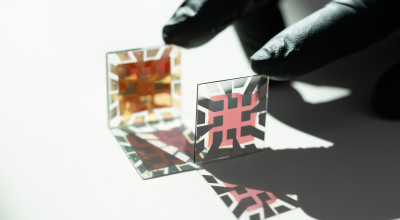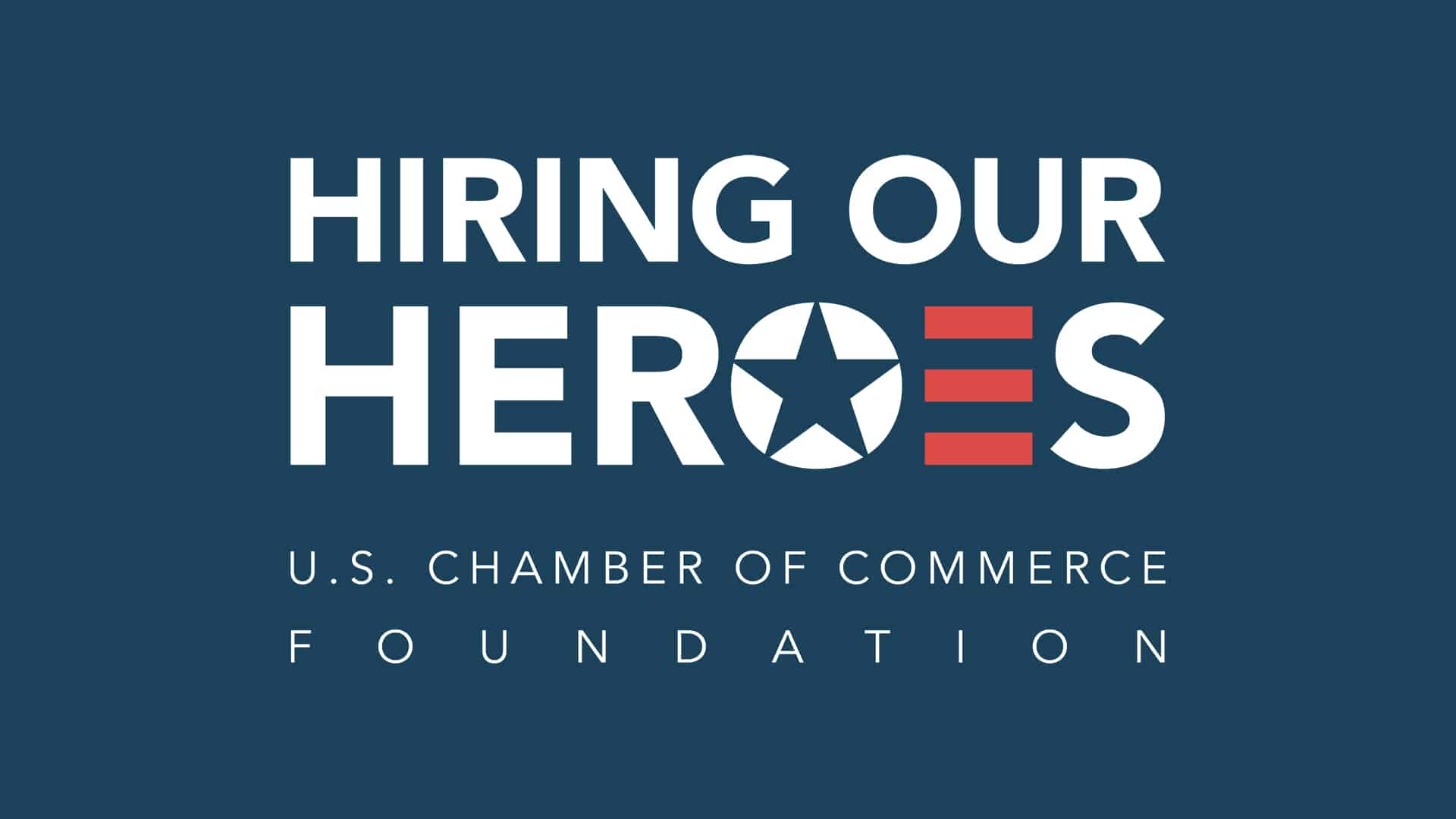
At the nexus of military excellence and cutting-edge research, Georgia Tech Research Institute (GTRI) has embraced the Hiring Our Heroes (HOH) Fellowship, a U.S. Chamber of Commerce initiative. With a mission to ensure seamless transition and integration of military personnel into the civilian workforce, the Hiring Our Heroes program is indicative of GTRI's commitment to being a “people-first” organization. The Hiring Our Heroes partnership is not one of convenience. It is GTRI “walking the talk” of what is written in our Strategic Plan: “GTRI does not profit from national security; we stand shoulder-to-shoulder with our government partners to serve national security.”
GTRI’s Latest HOH Cohort is ‘Mission-Ready’
We spoke with members of the “23-3” cohort of GTRI’s Hiring Our Heroes program as they began their fellowships in early September. Their insights show the importance of the HOH program, both for the fellows and for GTRI.
The GTRI HOH Experience
For many warfighters, transitioning from the structured military environment to a research institution can be daunting. But at the heart of this transition is guidance. Each fellow is paired with a sponsor from one of GTRI's eight prestigious laboratories.
The Impact of HOH
It's not just about employment; it's about community, integration, and mutual growth. For those in the military community considering this path, the fellows have some advice.
Below, we present the fellows’ thoughts in their own words.
Meet the GTRI Hiring Our Heroes Fellows in the ‘23-3’ Cohort
Zachary Guyton:
Zach’s sponsor is Jeffrey O’Hara, Principal Research Scientist, ASL
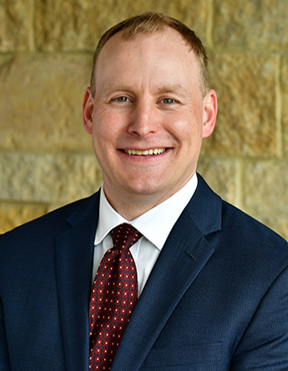 Give an overview of your military career. How long did you serve, and in what capacities?
Give an overview of your military career. How long did you serve, and in what capacities?
I have served 12.5 years in the Army as an infantry officer. During this time, I have held the positions of platoon leader, company commander, operations and logistics planner, operations officer, and assistant professor at USMA. I have multiple combat and operational deployments (Afghanistan twice, Kuwait, and Korea) and have been in both light infantry and Armor (Tank) formations.
How did you first learn about the Hiring Our Heroes (HOH) Fellowship at GTRI?
Prior to joining the 23-3 cohort, I interviewed for a GTRI position that I did not get. I maintained contact with the GTRI Division/Branch leadership, which led to a HOH fellowship. Throughout the process, GTRI was extremely professional and engaged while setting me up for the fellowship and potential post-fellowship employment.
What type of research will you be conducting in your assigned laboratory at GTRI?
I am working in the Human Systems Engineering Branch (Human Centered Engineering Division) within the Applied Systems Laboratory. I will be conducting human factors and human systems integration/engineering research in support of efforts to improve future Army fighting and transportation vehicles.
How do you think programs like HOH impact the broader military community in transitioning to civilian roles; and what advice would you give to future transitioning service members considering the HOH Fellowship at GTRI?
Hiring our heroes is an outstanding opportunity for transitioning servicemembers to immerse in a civilian job and determine the type of the work they want to do following military life. It also can provide a direct path to employment following the fellowship.
I would tell future GTRI Hiring our Heroes candidates to ask questions, learn as much as possible, and stay proactive as they consider GTRI as an option. There are plenty of opportunities within GTRI and finding the right spot within the organization will help ensure GTRI is a good fit.
Amana Norris:
Amana’s sponsor is Eric Scott, Principal Research Associate, Information and Cybersecurity Department (ICD)
 Give me an overview of your military career. How long did you serve, and in what capacities?
Give me an overview of your military career. How long did you serve, and in what capacities?
I enlisted in February 2003 in the U.S. Army, and will officially retire in March 2024, thereby spanning a 20-year career in Information Technology and Cybersecurity. I began as a 25B--Information Services Specialist, in the Signal Corps, reaching the rank of SSG before applying to become a Warrant Officer as 255A--Information Services Technician. Later, when the Cyber Corps was being established around 2014, I decided to transition as a 170A, where I am now a CW3.
Throughout my career in the Signal and Cyber Corps, I have been stationed and deployed to various organizations in Korea; Germany; Fort Liberty (formerly Bragg), North Carolina; Fort Eisenhower (formerly Gordon), Georgia; Kuwait, and Afghanistan. My various roles included the opportunity to exercise my leadership skills and demonstrate my skillset in Helpdesk Operations, COMSEC security, server technician, and cybersecurity. Within my military career, it has been my passion to increase my technical skills as much as possible since Information Technology and Cybersecurity are translatable into a civilian career. The only difference between the military and civilian sectors is the mission and operations. Tools used and knowledge gained remain the same.
How did you first learn about the Hiring Our Heroes (HOH) Fellowship at GTRI?
I was contacted by email to interview for a position within the Information and Cybersecurity Division (ICD), where I would be able to continue using my technical skillset. I signed up for the HOH fellowship program because I wanted something that would allow me to operate in a civilian setting outside the DoD. I view this fellowship as an opportunity to apply my knowledge, identify areas I may be lacking, and adapt to civilian operations. I was not aware that GTRI had various HOH Fellowships throughout their various labs and was actually referred to ICD when I was conducting an interview for a program management position. Personally, I was not interested in program management and wanted something that fell into IT or Cyber. Luckily, my information was sent to ICD, where I found the work/life balance to be an attractive incentive in accepting the fellowship with GTRI and ICD.
What type of research will you be conducting in your assigned laboratory at GTRI?
As part of ICD, I am part of the support services in threat-hunting cybersecurity incidents. Research will consist of identifying new cybersecurity threats and sharing that information.
How do you think programs like HOH impact the broader military community in transitioning to civilian roles; and what advice would you give to future transitioning service members considering the HOH Fellowship at GTRI?
Programs like HoH provide service members an opportunity to find their strengths and weaknesses outside a military setting. The transition time helps ease a service member’s mindset in letting go of the military while possibly learning a new skillset or applying their current skills to the position they select. There are some organizations that monopolize a service member’s transition time and don’t allow them the opportunity to gradually become a civilian again. When you join the Army, you go through basic training to shed the civilian mentality and become a soldier. Without programs like the HoH, I feel some service members would experience shock in the transition. Those are the ones who would most benefit from a program like the HoH Fellowship.
Brian Trainor:
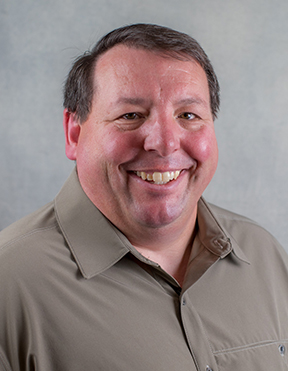 Brian’s sponsor is Stan Sutphin, Principal Research Engineer, SEAL
Brian’s sponsor is Stan Sutphin, Principal Research Engineer, SEAL
Give me an overview of your military career. How long did you serve, and in what capacities?
I was an Electronic Warfare Officer in the USAF for a little over 23 years.
How did you first learn about the Hiring Our Heroes (HOH) Fellowship at GTRI?
I learned about GTRI during the resume release portion of the HoH program.
What type of research will you be conducting in your assigned laboratory at GTRI?
I will be helping research and create a roadmap for the Electromagnetic Spectrum Operations test and training infrastructure at the National Space Test and Training Complex (Schriever Air Force Base, Colorado).
How do you think programs like HOH impact the broader military community in transitioning to civilian roles; and what advice would you give to future transitioning service members considering the HOH Fellowship at GTRI?
I think programs like HOH help expose transitioning service members to follow-on career options that they may not have been aware of or even considered realistic options before entering the fellowship program. My advice to future transitioning service members would be to take as many opportunities to connect, speak, and interview with as many companies as possible during the "interview stage" of the program. I know that getting that exposure to multiple different companies and how they operated helped me narrow down and ultimately decide where I wanted to be--GTRI.
Ric ‘TAC’ Turner:
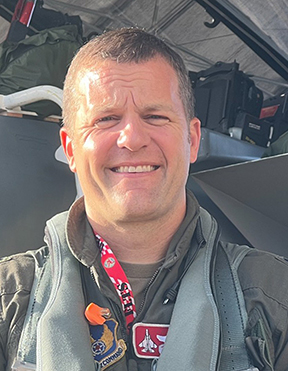 TAC’s sponsor is John Bennell, Principal Research Associate, Sensors & Intelligent Systems Directorate (SISD)
TAC’s sponsor is John Bennell, Principal Research Associate, Sensors & Intelligent Systems Directorate (SISD)
Give me an overview of your military career. How long did you serve, and in what capacities?
I have over 20 years of experience as a leader, test pilot, fighter pilot and engineer in the United States Air Force.
What type of research will you be conducting in your assigned laboratory at GTRI?
I conduct cutting-edge research and development projects in aerospace engineering. I am passionate about the integration of systems--especially as they cross domains to provide capability, as well as advancing the state-of-the-art in air, space, and cyberspace systems, and look forward to leveraging my expertise, experience, and network.
Cody Waits:
Cody’s sponsor is Clayton Besse, Principal Research Associate, CIPHER
 Give me an overview of your military career. How long did you serve, and in what capacities?
Give me an overview of your military career. How long did you serve, and in what capacities?
I served in the Army for 7.5 years as a Signal Officer, the majority of the time with Special Operations and Airborne community. I deployed in support of Operation Inherent Resolve and managed tactical information network nodes and secure radio communications. As a Signal Officer, I was the IT Operations manager for multiple organizations within my career. I allocated tactical IT assets to mission-based requirements to provide consistent and clear communications to ground forces and higher headquarters.
How did you first learn about the Hiring Our Heroes (HOH) Fellowship at GTRI?
I did not even know about the fellowship opportunity until [CIPHER Senior Research Associate] Steven Bartels reached out to me to set up an interview to talk. I was immediately interested and after interviewing, GTRI was my most interesting opportunity and I accepted the bid to conduct my fellowship with GTRI.
What type of research will you be conducting in your assigned laboratory at GTRI?
I will be conducting cloud integration/migration and cybersecurity research within the CIPHER Laboratory.
How do you think programs like HOH impact the broader military community in transitioning to civilian roles; and what advice would you give to future transitioning service members considering the HOH Fellowship at GTRI?
I think that programs like HoH are an amazing asset to the military community, this allows a unique opportunity where employers will reach out to you instead of applying to multiple applications online without even receiving an initial response. With the current job market climate, HoH proves to be invaluable to separating service members. I would advise future GTRI fellow candidates to highly consider GTRI, I believe this is a work environment that will still give you that sense of purpose and fulfillment that you will miss upon separating from the military.
GTRI’s Hiring Our Heroes Fellowship program is more than just an employment opportunity—it's a bridging of two worlds where skills, dedication, and innovation intersect. Through this program, GTRI not only gains valuable expertise but also reinforces its commitment to giving back to those who've served. For the fellows, it’s a chance to chart new horizons, building on their rich military past. While each HOH Fellowship cohort lasts 12 weeks, the relationships built and the skills acquired have long-lasting implications.
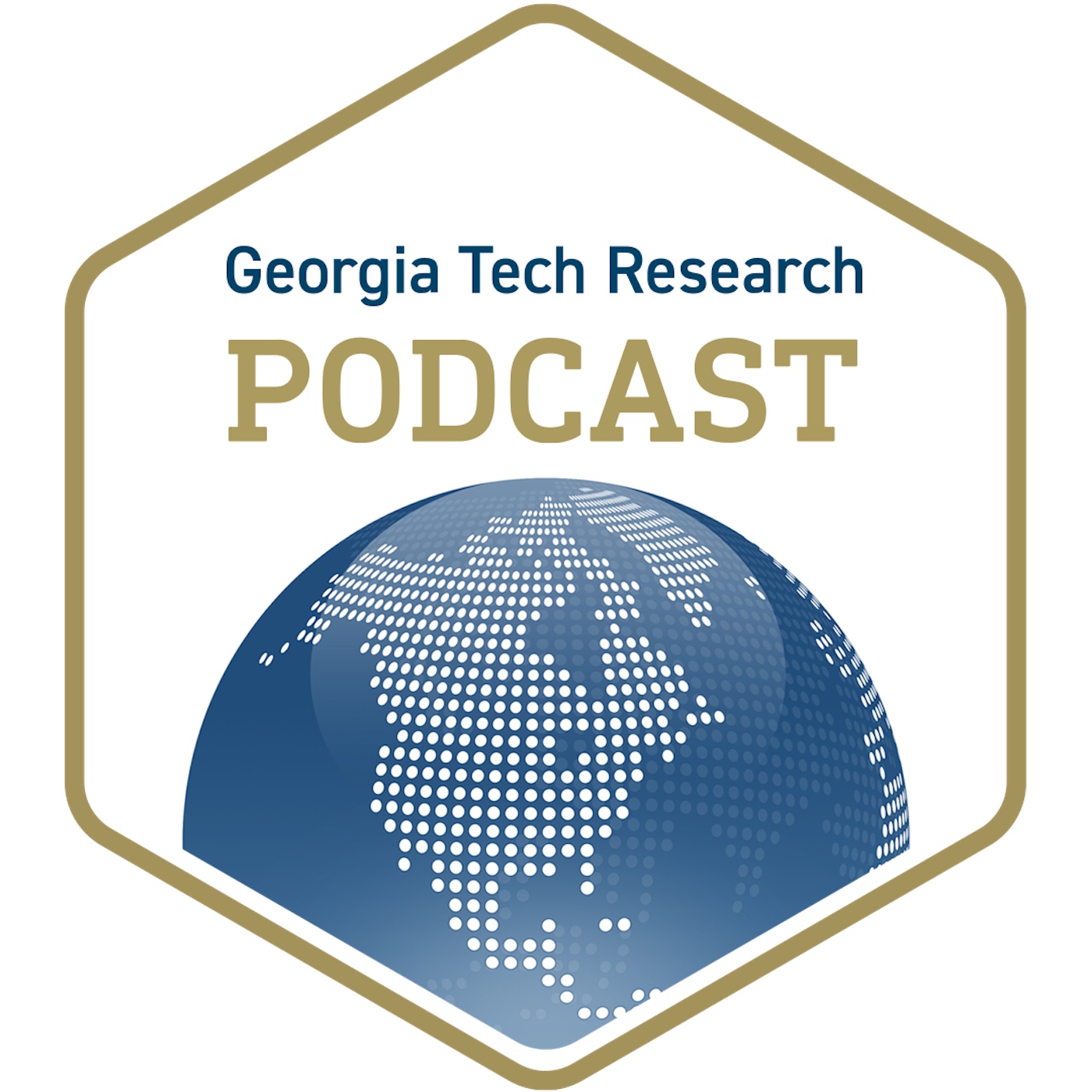 | EPISODE 20: "Hiring Our Heroes" |
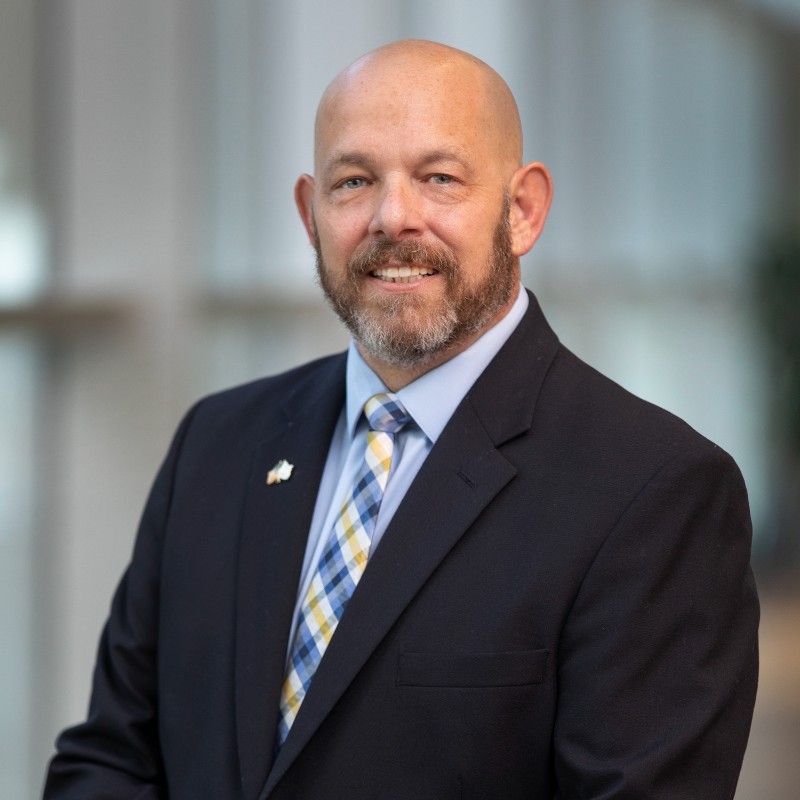 | In this episode of the Georgia Tech Research Podcast, host Chelsea Selby talks to Erik Andersen, a Principal Research Associate in Georgia Tech Research Institute’s (GTRI) Electro-Optic Systems Directorate (EOSD) about “Hiring Our Heroes.” The episode discusses what the underlying concepts and principles of military separation are, why they are important at Georgia Tech and GTRI, and what implications these concepts have on the future hiring of military members, their spouses, and other veterans. |
Writer: Christopher Weems
GTRI Communications
Georgia Tech Research Institute
Atlanta, Georgia

The Georgia Tech Research Institute (GTRI) is the nonprofit, applied research division of the Georgia Institute of Technology (Georgia Tech). Founded in 1934 as the Engineering Experiment Station, GTRI has grown to more than 2,900 employees, supporting eight laboratories in over 20 locations around the country and performing more than $940 million of problem-solving research annually for government and industry. GTRI's renowned researchers combine science, engineering, economics, policy, and technical expertise to solve complex problems for the U.S. federal government, state, and industry.



